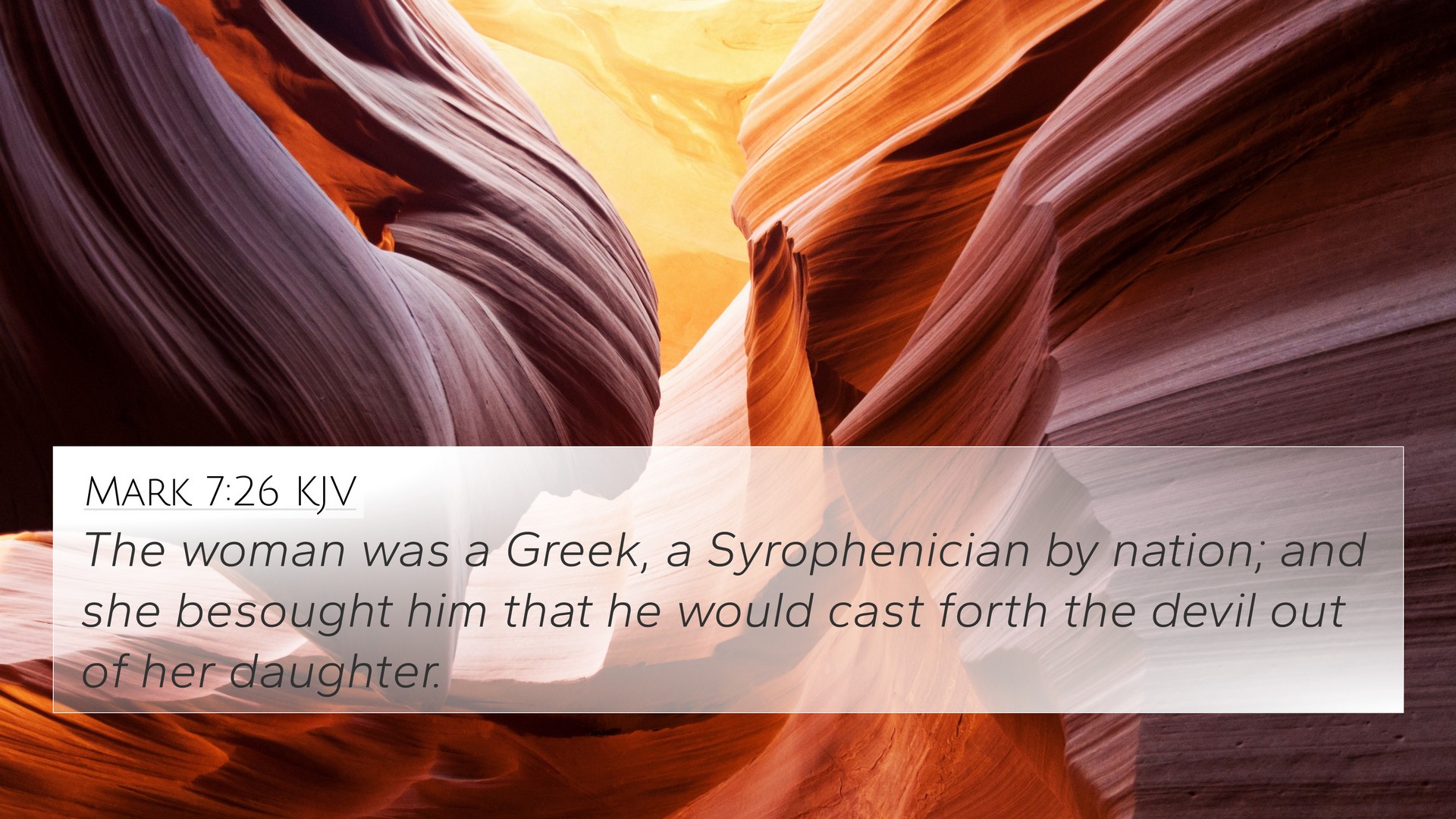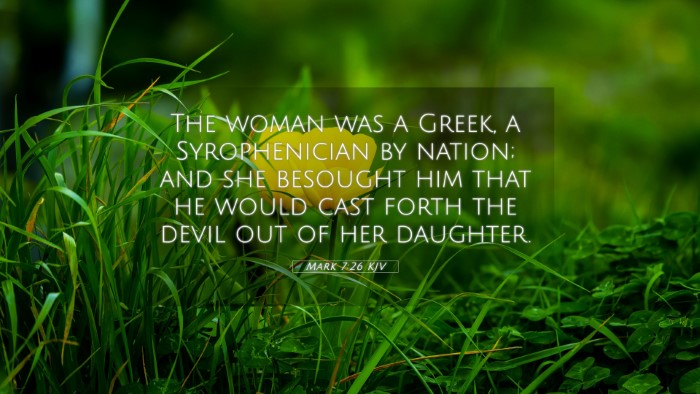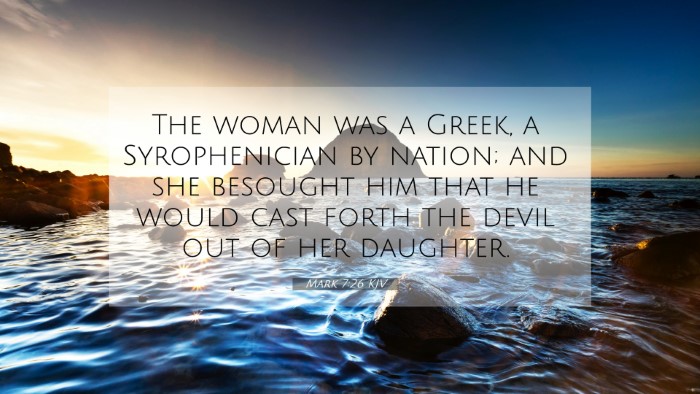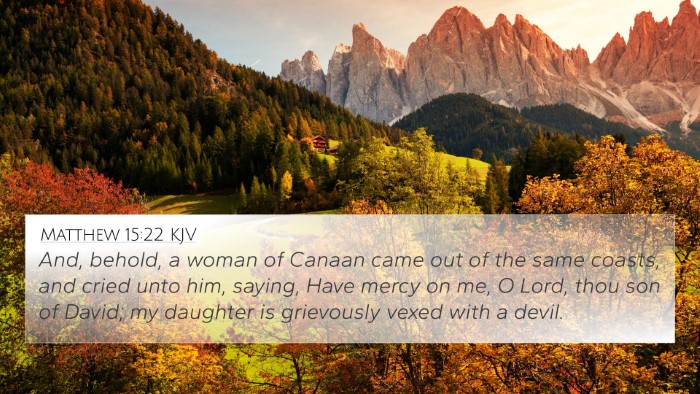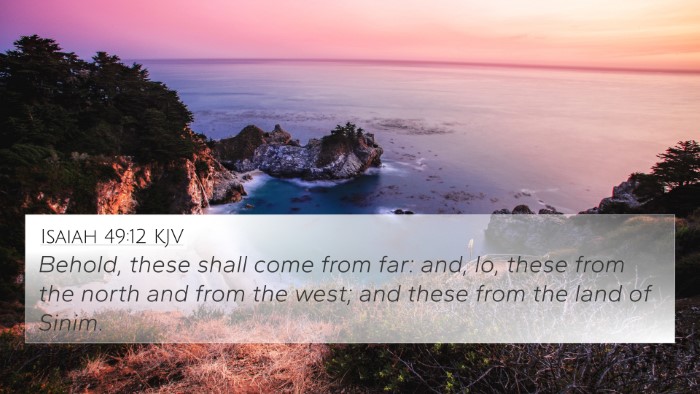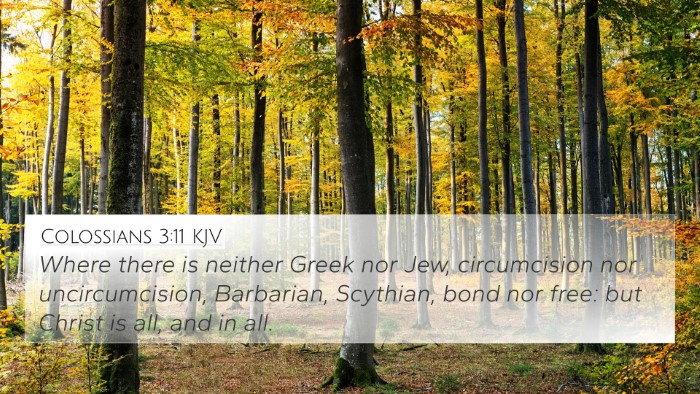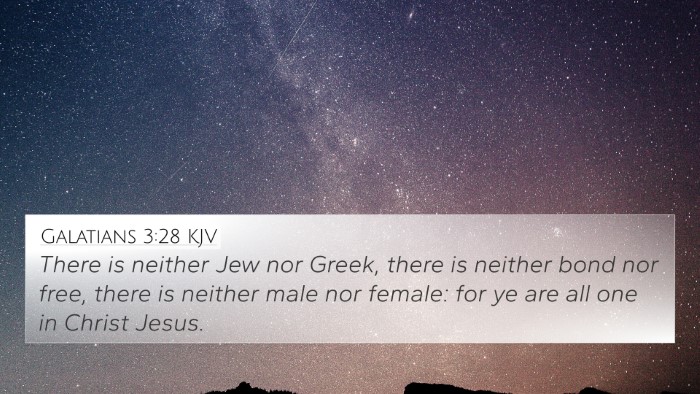Understanding Mark 7:26
Bible Verse: Mark 7:26 - "The woman was a Greek, a Syrophoenician by birth; and she besought him that he would cast forth the devil out of her daughter."
Verse Context
This verse occurs in the context of Jesus' ministry outside of Judea, specifically in the region of Tyre and Sidon. It highlights the encounter between Jesus and a Syrophoenician woman who sought healing for her daughter. Understanding this passage requires diving into the cultural and theological implications of Jesus' interaction with a Gentile.
Commentary Insights
Based on the commentaries of Matthew Henry, Albert Barnes, and Adam Clarke, we can synthesize various interpretations and insights regarding this verse.
- Cultural Background: The woman’s identity as a Greek and Syrophoenician suggests her Gentile status, which was significant in a predominantly Jewish context. This emphasizes the expanding reach of Jesus' ministry beyond the Israelites.
- Faith and Persistence: The woman’s request demonstrates her faith and determination. Despite the cultural barriers and initial rebuff from Jesus, she persists, illustrating a model of faith that surpasses societal expectations.
- Divine Compassion: Jesus’ eventual acceptance of her request reflects the heart of God towards all people, regardless of ethnic or cultural backgrounds, thereby emphasizing the universality of His message.
- Contrast with Israel: The interaction showcases the contrasting responses between the faith of the Gentile woman and the unbelief often displayed by the Jewish leaders.
- Testing of Faith: Some commentators suggest that Jesus’ response was a test of her faith, revealing that genuine faith often emerges through trials and challenges.
- Spiritual Warfare: The act of casting out a devil underscores the spiritual authority that Jesus holds and His mission to confront evil.
Bible Cross-References
In the context of this verse, several other scriptures provide valuable insights and connections that can enhance understanding:
- Matthew 15:21-28: The parallel account where the story of the Syrophoenician woman is recounted with additional details regarding her plea.
- Mark 5:25-34: Another instance of a woman demonstrating great faith in seeking healing from Jesus, showcasing the theme of faith amidst difficulty.
- Luke 7:1-10: The faith of the centurion, a Gentile who also seeks Jesus’ help, further illustrating the theme of faith found in unexpected places.
- Romans 1:16: "For I am not ashamed of the gospel, for it is the power of God for salvation to everyone who believes, to the Jew first and also to the Greek," reinforcing the message of the gospel's reach.
- Galatians 3:28: "There is neither Jew nor Greek, neither slave nor free, nor is there male and female, for you are all one in Christ Jesus," emphasizing the unity of believers, regardless of background.
- John 12:20: Where Greeks sought to see Jesus, indicating His broadening public appeal beyond Jewish audiences.
- Acts 10:34-35: Peter’s revelation that God shows no partiality and that acceptance before God is open to all nations.
Thematic Connections
This verse can be linked thematically to key ideas in scripture:
- Faith in adversity.
- The inclusion of Gentiles in the plan of salvation.
- The confrontation between faith and societal norms.
- Jesus’ authority over demonic forces.
Tools for Bible Cross-Referencing
To analyze scripture parallels and references effectively, one might utilize:
- Bible Concordance: A tool that helps locate verses based on keywords, facilitating the finding of connections.
- Bible Cross-Reference Guide: Resources that provide thematic links between passages and topics.
- Comprehensive Bible Cross-Reference Materials: Books and online tools designed for extensive cross-referencing, enhancing study depth.
User Intent Keywords
For those exploring connections, consider:
- What verses are related to Mark 7:26?
- Similarities between the faith of this woman and other biblical characters.
- How do themes of faith in adversity appear throughout scripture?
Conclusion
Mark 7:26 serves as a profound illustration of faith, the breaking down of cultural barriers, and the inclusivity of Jesus’ ministry. Through analyzing this verse with the aid of cross-references and thematic connections, one can gain deeper insight into the universal call of the gospel and the uncompromising faith required to seek it.
